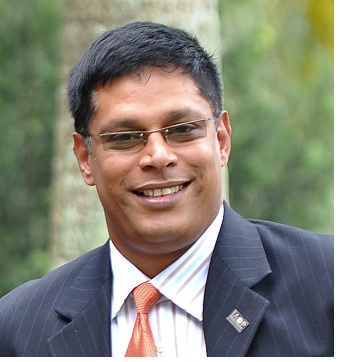‘Shell shocked’ or timely call to action?
By Karamjit Singh May 18, 2015
- Oil & gas giant Shell to shift estimated 700 IT jobs to India from Malaysia
- New wave in outsourcing, Global Business Services, drives higher value

IN the quest to continually squeeze out efficiencies and innovate to extract more value from the corporate structure, the shared services and outsourcing sector has seen a new trend emerge over the past two to three years.
Described as Global Business Services, it is a trend that the largest companies in the world are driving, with the pioneer being British Petroleum (BP), one of the world’s six ‘supermajor’ oil and gas companies.
With an annual information technology budget of US$2 billion, the driver for BP was not cost savings but value.
It put its five global tech vendors together, removing the silos they were in, put together a governance model that cut across their respective areas of responsibility with the singular mandate that anything done by them has to give value to BP.
Enter the term, Global Business Services, or GBS.
 “It is very difficult to do however, as you need scale, size and a maturity in the business,” says Bobby Varanasi (pic), chairman and chief executive officer of Matryzel Consulting Inc, a global outsourcing advisory firm based in Kuala Lumpur.
“It is very difficult to do however, as you need scale, size and a maturity in the business,” says Bobby Varanasi (pic), chairman and chief executive officer of Matryzel Consulting Inc, a global outsourcing advisory firm based in Kuala Lumpur.
But when done right, it does lead to higher value for the organization, which can reinvest the capital conserved into higher value areas.
The waves of this trend have hit Malaysia as well. Shell Malaysia announced last month that it was going to move the IT jobs from its Cyberjaya Business Operations Centre to Bangalore, India.
Interestingly, despite the high annual salary jumps in India’s IT sector, estimated in the mid-teen percentage points, Shell Malaysia cited the lower IT costs in India as one of the drivers.
Varanasi notes that the bigger picture of what is going on in Shell is that the largest companies in the world are now looking at their various outsourcing and shared services functions, and asking how they can derive higher value from combining them inhouse – while cutting the pieces that are in the lower performance quadrant and shifting those jobs elsewhere.
While Shell has not given an indication of how many jobs will be involved, Malaysia’s outsourcing industry pundits believe it to be in the 700 range.
An outsourcing industry executive told Digital News Asia (DNA) that a lot of the IT work in Malaysia goes back to Shell’s India centre anyway, where more complicated work is done.
To be sure, the impending loss of the IT jobs, spread over three to five years, is by no means a dampener on the vibrant GBS sector of the country.
In its 2014 report of MSC Malaysia companies, Multimedia Development Corporation (MDeC) said that the GBS sector attracted RM1.08 billion (US$300 million) of new investments into the country, while revenue was RM13.9 billion (US$3.9 billion).
MSC Malaysia or the Multimedia Super Corridor project aims to boost the ICT sector in the country. MDeC, the national ICT custodian, manages it.
Meanwhile a Shell Malaysia spokesperson tells DNA that its Business Operations Centre specialises in other functions that are being retained, while adding that the company continues to look for ways to migrate higher value work to its Cyberjaya centre from its global operations.
The centre provides human resource, finance, distribution, communications production services, global commercial and contracting, and procurement support for Shell’s global operations.
MDeC chief executive officer Yasmin Mahmood confirms with DNA that Shell will continue to support its footprint in Malaysia by expanding the five streams, while exploring bringing in new streams of jobs.
“And we see this continuing, and happening with all of our [GBS] investors, which are looking at how to expand their footprint,” she says.
Indeed, recently oil and gas services company Schlumberger opened two new global support centres in Malaysia.
These centres will focus on supporting procurement and human resources transactions for its operations in Asia, Middle East, Europe and Africa. These are in addition to its Global Finance and IT Enterprise Management Hub, also in Malaysia.
According to MDeC, this is a significant investment by Schlumberger, worth an estimated RM500 million (US$140.4 million), and adding 535 new jobs to Malaysia over the next five years.
 That piece of good news aside, Yasmin (pic) acknowledges however that in the area of IT support, Malaysia does face stiffer competition.
That piece of good news aside, Yasmin (pic) acknowledges however that in the area of IT support, Malaysia does face stiffer competition.
“We have countries such as India, which is already very strong and is now boosted by the new vibrancy in its economy. And then we have new countries like Vietnam,” she says.
The erosion of Malaysia’s IT support capabilities is happening at a time of not only increased competition from other nations, but also while interest in IT careers is on a downtrend, according to a senior executive at a leading private university focused on offering IT-based programmes.
Not only that, the Malaysian Government, in a bid to raise entry standards for IT-based programmes, has mandated that students must have a Pass Grade in the Additional Mathematics subject from June onwards.
This is also going to squeeze the number of students eligible for IT programmes, thereby exacerbating the supply tightness.
Under the circumstances, MDeC, which is heavily involved in talent development programmes for the GBS sector, will have its hands full trying to meet the demand from industry.
Meanwhile, Varanasi, with an eye on the GBS trend, suggests that the ‘Shell shock’ be used by Malaysia as an opportunity to look at how it really adds value locally to all the companies that are based here under the GBS umbrella.
“Malaysia needs to develop high-end services because you don’t want to lose future deals when companies reorganise under GBS,” he says, adding that already DHL is looking into this model as well.
Incidentally, DHL has a large presence in Cyberjaya, comparable to Shell’s 3,500 headcount.
Related Stories:
Disrupt: Outsourcing in Malaysia still in ‘slave-master’ mindset
Malaysia’s SSO industry must shift focus from cost to growth
MSC Malaysia to move SSO cluster up value chain: MDeC
Outsourcing Malaysia, MDeC and TalentCorp in grad programme
For more technology news and the latest updates, follow us on Twitter, LinkedIn or Like us on Facebook.


